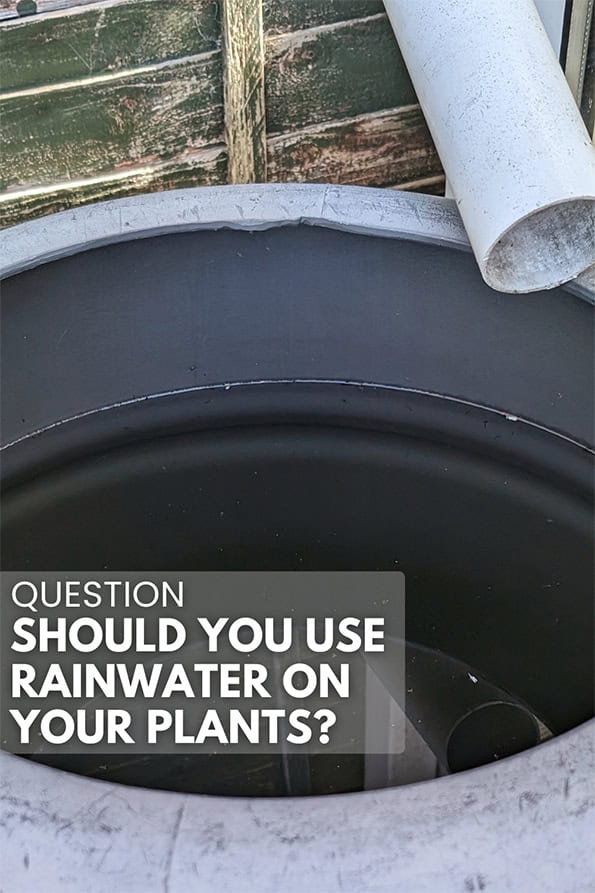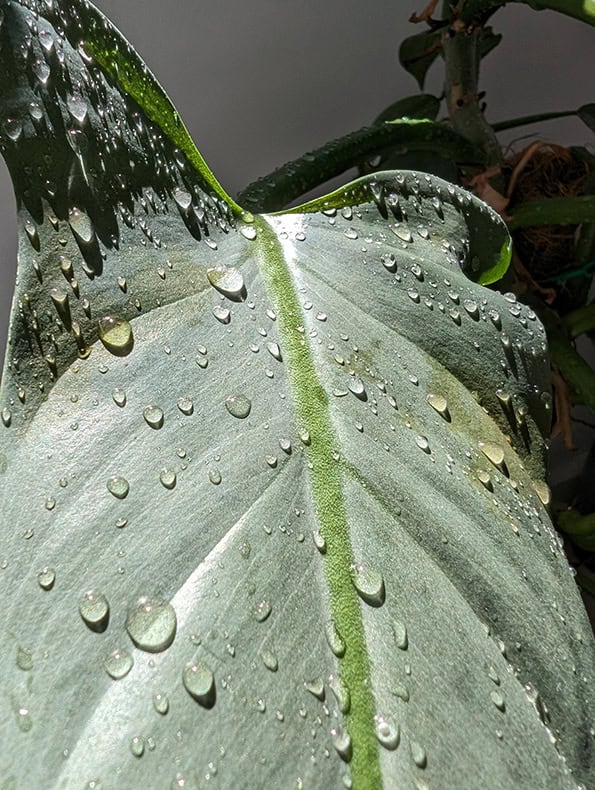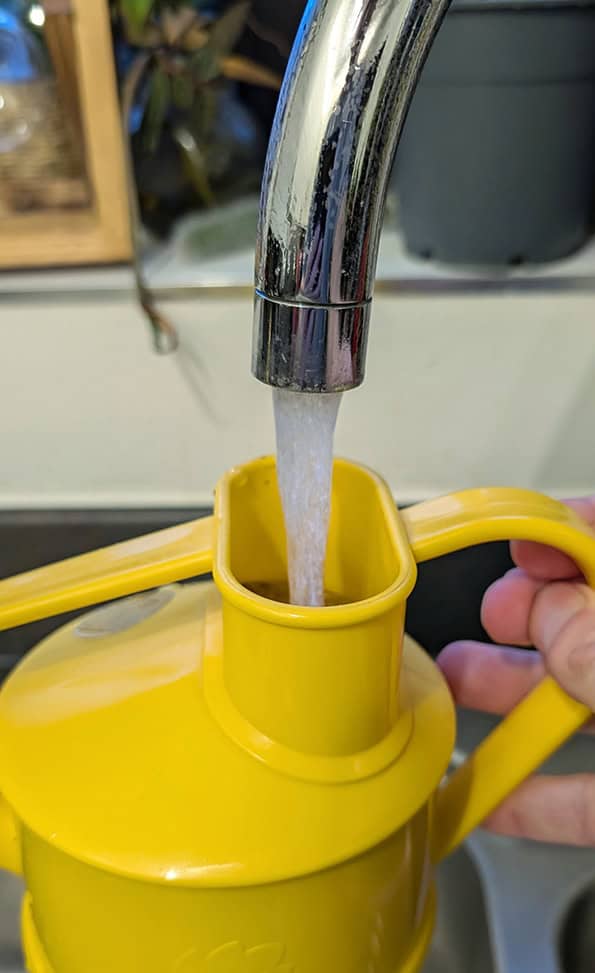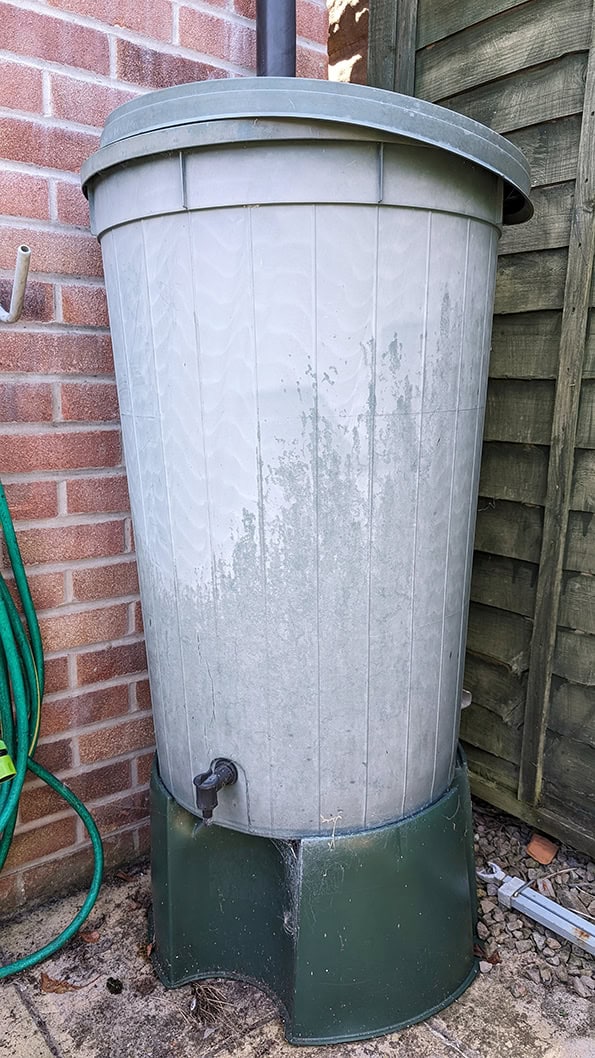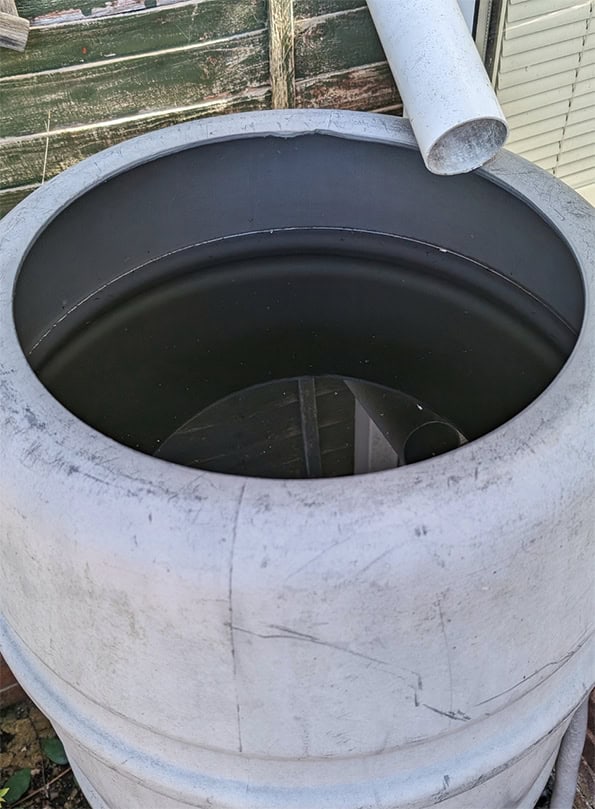Rainwater is perfect for plants. They've evolved over millions of years with rain falling onto their leaves and soaking into the growing medium surrounding their roots.
Many will argue that rainwater is often one of the best options for maintaining healthy plants. It's true that it's natural and free as well as having beneficial affects for most houseplants.
So to answer this question, yes, you can use rainwater with great results, and your plants will likely love you that extra bit more if you do. But you don't have to use it. As a houseplant lover who has been growing them for decades, I rarely use rainwater. There are reasons for this which I'll cover below.
Why does rainwater make plants so much happier than tap water? Let's find out.
In this post I'm going to explore three broad topics, covering why rainwater is good for plants, and can make them happier than using tap water. Before looking at how to collect, store and use rainwater properly.
I'll add tons of top tips, dos and don'ts as we go, that should hopefully give you some ideas you can use in your own watering setup.
"Why does rainwater make plants so much happier than tap water?". This is the question I was asked that inspired this article. The exchange happened with a friend after a brief thunderstorm during a hot summer. The rain fell, then it stopped and the sun came out. It smelt glorious and I agreed the plants and greenery looked fantastic.
Part of this is simple physics, the water droplets reflecting the light and making everything look brighter and shinier, but there is some science that rainwater can give plants a little boost.
There is something about outdoor plants looking happier after a rain shower. Replicate this by using rainwater to rinse dusty leaves for a refreshed appearance (cleaning the leaves can also improve photosynthesis. A double win!)
Does using Rainwater replace the need to fertilize plants?
It's true that rain does contain nutrients. However, as this study and this research shows, the amount of nutrients overall is low. So you'll have to continue to provide fertilizer to your houseplants for the best results.
It's generally fine if you water plants using tap water. But if you have hard water then overtime it can affect the potting soil and affect plant growth.
As well as the benefits outlined above, sensitive plants like Ferns (i.e. Boston, Maidenhair Fern etc) and Carnivorous plants (i.e. Venus Flytraps, Pitcher Plants etc) can be very fussy with hard tap water. So in this instances if these are houseplants you want to grow, you may well find you have to explore the idea of harvesting rainwater.

Hi, I'm Tom!
If you're like me and enjoy the challenge of growing houseplants and getting them to thrive, then Ourhouseplants can help. This website shares my knowledge and years of growing plants and provides (hopefully) helpful advice on properly caring for your indoor plant friends.
If you're sold on using rainwater on your plants you're going to need to know how to harvest and store it properly. The good news is that humans have been collecting rain for centuries and we're pretty good at it.
It might sound like a simple case of putting out a watering can or tray when rain is forecast to catch it. Although that does work, it's not practical. You'd only collect a trickle even in a heavy downpour. Hardly enough for even one plant let alone a small collection.
The amount you can gather will depend on the surface area that it's collected from. If you want large amounts of water, you're going to need to think bigger. For most people the straightforward way of doing it is to use a water butt or storage tank.
Outdoor rainwater storage tub with a lid to prevent debris and insects.
They're extremely popular in some countries. For example I'm from the UK and many developers build new homes that come with these rainwater storage barrels as standard. If you don't already have one, they're still easy to retrofit provided you have a downpipe and some space.
Too little space for a normal water barrel?
If you're happy to spend a little more for one, some companies now make unusually shaped Slimline Water Butts like these.
They should ideally come with a lid or cover. Standing water is a magnet for insects like mosquitoes, open tubs will inevitably also have debris and other organic material falling in. Over time this will encourage bacteria, making the water smelly and potentially harmful for your houseplants when you come to use it.
However you might share my problem, in that you either don't have access to downpipes or sufficient space to install the barrel. Although I have two pipes, both are in unsuitable locations.
Can I use something other than rainwater?
If rainwater isn't an option for you, you could try other options. Water from a dehumidifier, distilled water and boiling water that's been allowed to cool could all have benefits over tap water.
Fortunately there are now tubs in different sizes including super slim. They hold less water but are great for awkward positions. I've considered them, but they can be five or six times the price of a standard water barrel. When the price falls I'll be first in line to get one.
If you're in a flat, apartment, condo or have no access to property downpipes then you have to get more creative.
I've seen setups involving connections to garages or even garden sheds. Collecting snowfall and letting it melt is another popular method, but obviously it's extremely seasonal. You may know someone who has a barrel and they're happy for you to take the water. As long as it's clean and you store the rainwater correctly (more on this next) this could work too.
Although it's natural, rainwater does go bad, and there are types of rain you shouldn't use on your plants. Here are the dos and don'ts to be aware of.
Are mushrooms more common when using rainwater?
If organic material is allowed to collect in a water storage container it can increase the chances of mushrooms and toadstools growing in a potting mix. But there are other reasons for mushrooms and it's not always a bad thing to see.
After a heavy rain shower this tub is almost completely filled. However if you're using water from a barrel that doesn't have a lid like this one, the water will need to be used quickly before it goes bad.
You can mix with tap water when needed.
Houseplants will adapt and grow almost as well if you use tap water. If rainwater is unavailable in sufficient quantities, mixing what you have with tap water can still reduce the overall mineral content.
If you use it correctly, rainwater can be better for plants than tap water. In reality for most people the difference you're likely to experience with your plants is limited, but every little helps.
If you live in a very hard water area or have problems using tap water with your houseplants, you may have to use alternative water sources to continue with this hobby. Rain water is free and will help in these situations, so do give it a go if you're able and see if you notice a difference.
